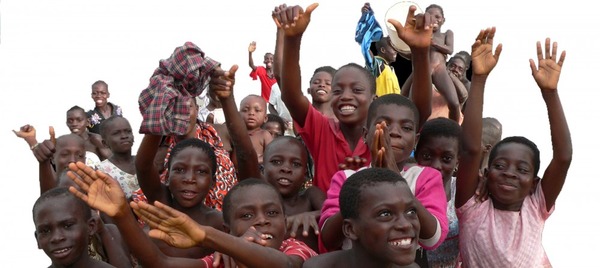
On Monday, May 3, 2010, Dr. Eva Tagoe-Darko will give a lecture entitled “The Healing Bowl: Traditional Teachings and Practices for Child Care in Ghana.” The discourse will take place from 7:30 p.m. to 8:30 p.m. in Olin Hall room 103.
Refreshments will be served at the lecture. Tagoe-Darko will also be speaking at the honors banquet for the Anthropology Society on Tuesday night.
Tagoe-Darko is a Fulbright scholar from Kumasi, Ghana who specializes in traditional methods of health care for children in Ghanaian culture. Holding a Ph.D. in Sociology with an emphasis on demography from Brown University, Tagoe-Darko is an interdisciplinary scholar whose specialties extend from public health to gender studies to Population studies. Tagoe-Darko has worked hard to promote the constructive traditional practices that pertain and can enhance the education and health care systems in Ghana and the United States.
“There are tremendous advantages and benefits to the traditional ways than the western orthodox scientific,” Professor of Sociology, Anthropology and Latin American, Latino and Caribbean Studies (LALACS) Patric Giesler said. “There are things that traditional peoples can teach us, things that are now hidden to us.”
The lecture will focus on the structure of the family and child rearing practices in Ghana. “Generally in the Ghanaian culture the way we relate to children is very different [than in American culture],” Professor Paschal Kyoore said. Kyoore, a native of Ghana, is a Professor of French and LALACS.
According to Kyoore the way in which Ghanaian children are raised and American children are raised is very different. “What parents expect from children and children expect from parents [is different]” Kyoore said “[In Ghana] children are raised by the whole community. It is the social and moral responsibility of the entire community to raise the children.”
The structure of the Ghanaian family is thus a little different than the American nuclear family. “[In Ghana] we also have aunts and uncles, but in Ghanaian culture those uncles are called father and those aunts are called mother and that is not just to make the person happy, it comes with responsibilities,” Kyoore said, “My bothers children are not just my nephews and nieces they are my children.”
Before becoming a Fulbright scholar, Tagoe-Darko was the Senior Lecturer, head of the Department of Geography and Rural Development, and the Vice Dean of the Faculty of Social Sciences at the Kwame Nkrumah University of Science and Technology, Kumasi, Ghana.
The Fulbright program works to promote a better understanding of both the views and values of the United States as well as furthering comprehension of other cultures. They do this by supporting scholars from the United States to go to other countries to conduct research or to present lectures, and funding scholars from other countries like Ghana to come to the United States and do the same.
Tagoe-Darko is currently a visiting Fulbright Senior Scholar at the Department of Geography, State University of New York- Geneseo.
Although most Gustavus students don’t currently have children, it has been widely expressed by faculty and student body alike that such a lecture would be constructive to the Gustavus community.
“There are a lot of people interested in the medical field at Gustavus and I would think it would really be of interest to those thinking [such a] field to get another perspective on child rearing and health,” Senior History major Amy Jahnke said, “I really believe the more you understand about other people the more you can think about what you think is true and beneficial.”Tagoe-Darko has earned various degrees and applies them in many different fields of study beyond the actual plain of the degree. “Dr.Tagoe-Darko is of special interest to us as a liberal arts college as she is a very interdisciplinary scholar,” Kyoore said.